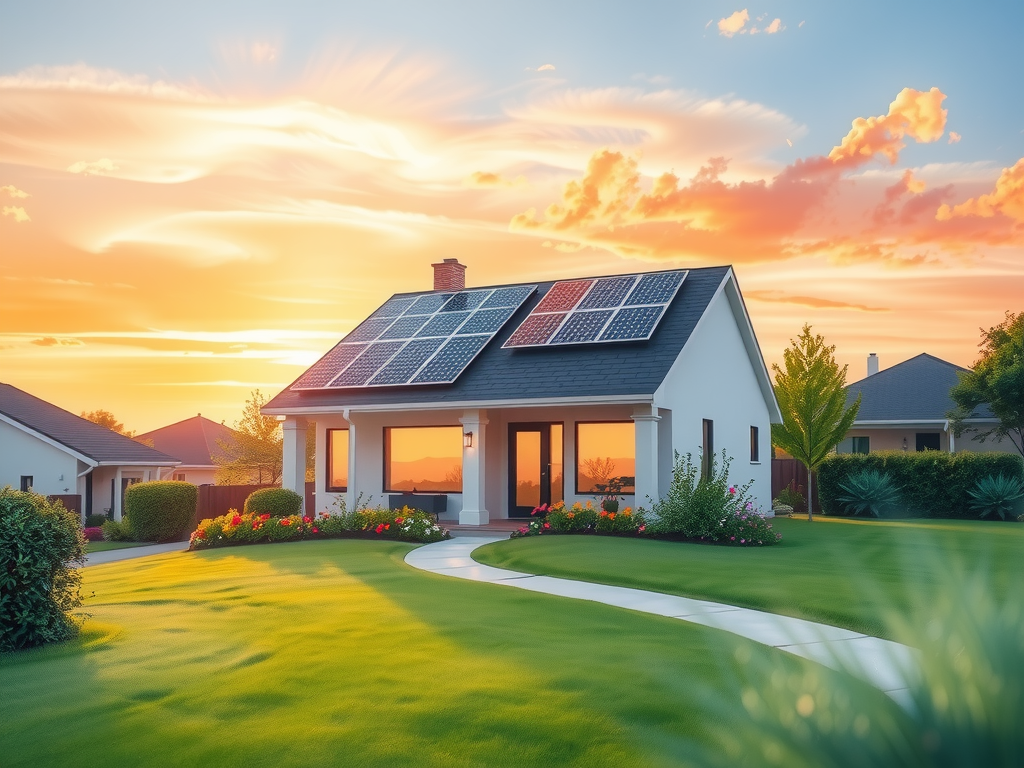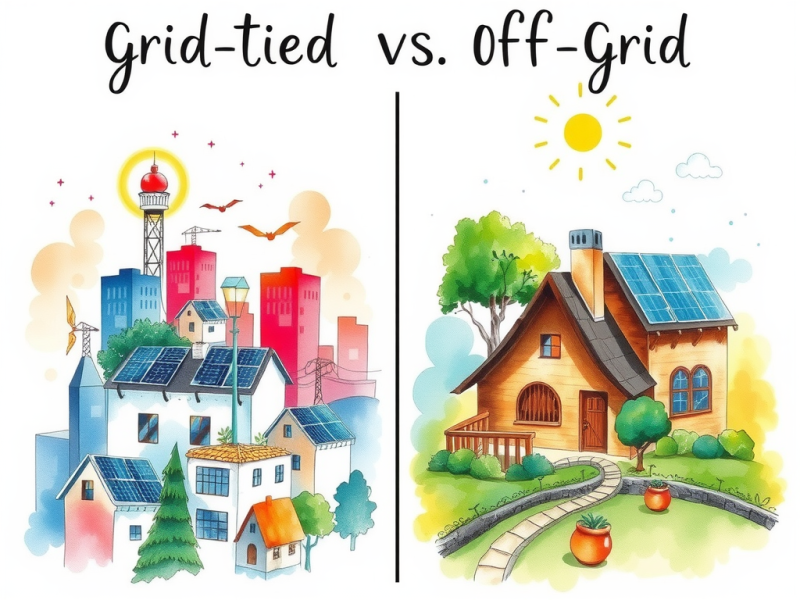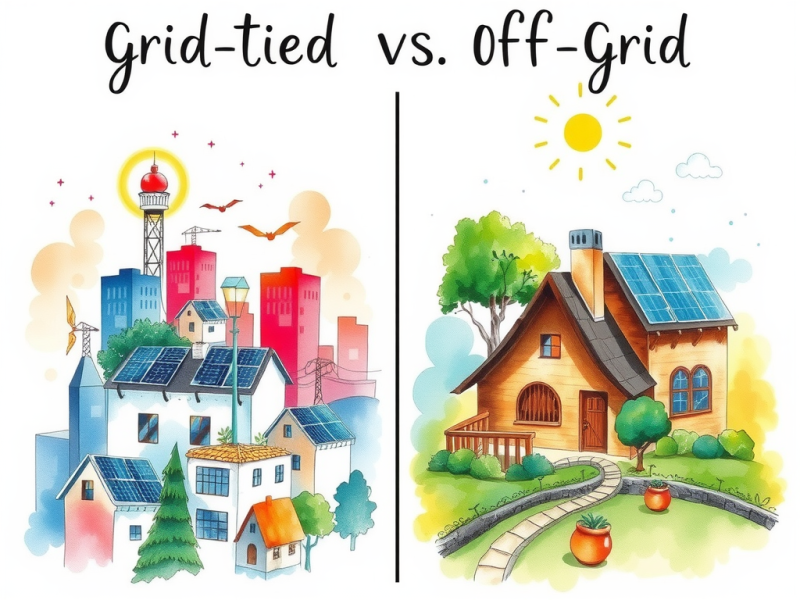
Homeowners want to harness solar energy for clean, renewable power. Selecting the best solar system for home use can reduce electricity costs and increase energy independence.
Options like Maxeon 7 and REC Alpha Pure lead the market with high efficiency and durability.
Installing solar panels offers practical solutions for energy savings.
Tax credits and financing options make transitioning to solar solutions more cost-effective than ever. This guide helps you find the ideal solar system for your home.
Click here to learn more about: how to make homemade soap at home
Solar Energy Benefits
Solar energy offers many environmental and financial advantages.
Harnessing solar energy helps reduce carbon footprints. Communities adopting solar solutions cut greenhouse gas emissions and promote sustainable living.
Homeowners save up to $20,000 over 20 years on electricity costs through solar panel installation.
Environmental Advantages
Adopting solar solutions leads to a reduction of 250,000 tons of CO2 emissions annually in places like San Diego.
Long-term Financial Savings
- Maxeon 7 panels: 9% efficiency in lab settings, 1% in real life.
- REC Alpha Pure: 2% efficiency, $49 per watt, strong warranty.
- Panasonic Evervolt: Excels in heat resistance, 2% efficiency.
- Palmetto Solar: Leading solar company in 2025 with excellent customer reviews.
- Tesla solar: Offers integrated solutions for easy energy management.
Choosing the right solar panels means considering local climate, roof structure, and energy needs. Net metering programs help homeowners earn credits by sending excess solar power back to the grid. With government incentives and tax credits, investing in solar energy becomes more affordable.

How To Maximize Solar Efficiency
Maximizing solar efficiency requires careful planning and maintenance. Effective solar installation with reliable brands like Maxeon 7 and REC Alpha Pure can capture more sunlight, leading to higher energy generation.
To improve solar performance, ensure solar panels are clean and free from debris.
Regular inspections help identify any damages, increasing the longevity of your system.
Optimal Panel Placement
Optimal panel placement is key.
Install solar panels at an angle that faces south to capture maximum sunlight throughout the day. This simple change can significantly boost your solar efficiency.
Upgrade Systems for Better Performance
Upgrading inverter systems can greatly enhance energy conversion.
This will increase overall efficiency and yield better energy savings. Well-maintained systems contribute to your home’s energy independence.
Exploring Energy Independence Options
Energy independence through solar power is now more attainable.
Options like Tesla solar batteries enable homeowners to store excess energy generated during the day.
New energy storage systems optimize solar energy use and reduce reliance on the grid.
Energy Storage Solutions
Different energy storage solutions are available today.
Many homeowners choose advanced battery systems to capture and store their generated power. This approach not only leads to significant energy savings but also promotes sustainable living.
A family using an off-grid solar setup showcases the potential for complete home power without grid connection.
This setup illustrates how solar panels and battery storage work together for energy independence.
Case Study: Off-Grid Solar Setup
This case study exemplifies the real-world benefits of solar energy solutions. The right mix of solar systems and storage ensures long-term viability for home energy management.
Solar Efficiency and Energy Independence
- Solar panels can increase energy generation by up to 30% when optimally placed and maintained.
- Upgrading to advanced inverter systems can improve energy conversion efficiency by 10-15%.
- Homeowners with battery storage systems can save up to 70% on their electricity bills by utilizing stored solar energy.
- Off-grid solar setups can provide complete energy independence, reducing reliance on traditional power sources.
What Are High-Efficiency Panels
High-efficiency solar panels maximize energy conversion from sunlight. These panels use advanced technology to produce more energy than standard models.
Homeowners investing in high-efficiency panels can achieve significant energy savings over time.
For example, Maxeon 7 panels have an efficiency rating of 9% in lab conditions, leading to lower electricity costs.
The REC Alpha Pure model offers a price of around $49 per watt and delivers strong performance across various climates. By choosing high-efficiency solar options, homeowners gain financial benefits and enhance power generation for sustainable living.
The Role Of Net Metering In Savings
Net metering helps homeowners to make money from excess solar energy.
When a home generates more energy than needed, the surplus can go back to the grid. This process results in credits that reduce electricity costs.
Using net metering effectively increases financial savings from your solar installation.
Here are key questions homeowners should ask utility companies about net metering:
- What are the specific net metering rates?
- Are there any potential fees for net metering?
- How does the credit system work?
Utilizing net metering with high-efficiency panels enables homeowners to achieve lower bills and gain greater energy independence.
- High-efficiency solar panels can produce up to 25% more energy compared to standard panels.
- Homeowners can save thousands of dollars on electricity bills over the lifespan of high-efficiency panels.
- Net metering policies vary by state, potentially offering significant financial benefits for solar energy users.
- High-efficiency panels like Maxeon 7 and REC Alpha Pure are designed to perform well in diverse environmental conditions.
Evaluating Solar Installation Costs
Solar installation costs vary widely, impacting homeowners’ decisions. These costs affect financial benefits, such as energy savings on electricity bills.
Common expenses include equipment costs, which cover solar panels and inverters, along with labor costs for installation.
Additional fees might include permits and inspections.
Installation expenses typically range from $15,000 to $25,000 for an average home. To ensure you get the best deal, compare quotes from at least three installers.
Look for a detailed breakdown of costs to choose a cost-effective solar solution.
Common Expenses in Solar Installation
- Equipment Costs: Solar panels, inverters, and mounting systems.
- Labor Costs: Installation services and electrician fees.
- Permits and Inspections: Necessary local government approvals.
Understanding these costs can help in planning for a solar system that meets your energy needs while being budget-friendly.
Choosing The Right Solar Solutions
Choosing the right solar solution directly impacts your path to energy independence. Residential solar systems serve individual homes, while commercial solutions cater to larger energy demands. To assess energy needs, evaluate your current power usage in kilowatt-hours per month. Future needs, such as electric vehicle charging, should also be considered.
Utilizing online calculators can help estimate the appropriate size of your solar array.
Considerations for Residential vs. Commercial Solar Solutions
- Residential Solar: Tailored for individual households, focusing on energy efficiency and savings.
- Commercial Solar: Designed for larger establishments, addressing greater energy requirements.
By understanding your unique energy consumption and future needs, you can select solar systems that align with your goals.
Solar Installation Costs
- The average cost of solar installation for a home ranges from $15,000 to $25,
- Comparing quotes from multiple installers can lead to better pricing and options.
- Permits and inspections are essential for compliance with local regulations.
- Understanding your energy consumption helps in selecting the right size for your solar system.
Solar Warranty and Incentives
Investing in solar energy is a smart choice for homeowners. Warranties protect your investment by ensuring the long-term performance of solar panels.
A good warranty typically covers 25 years, providing peace of mind.
Common incentives like federal tax credits can lower initial costs by up to 26%.
These incentives significantly impact overall expenses, making solar installation more affordable.
Important Aspects of Solar Warranties
When considering a solar warranty, check what is covered. Look for protection against product defects, performance issues, and included labor costs.
A strong warranty ensures a secure investment in renewable energy solutions that will benefit you in the long run.
Exploring Solar Incentives
Many homeowners can save with incentives available in their states. These include tax credits and rebates that reduce the total cost of solar panel installation.
Utilizing net metering programs allows homeowners to earn credits by sending excess solar power back to the grid.
Financing options make it easier to invest in solar systems, ensuring you get energy savings and enhance your energy independence.
Choosing the Right Solar System
The best solar system balances efficiency, cost, and long-term warranties.
For instance, Maxeon 7 panels offer a high efficiency of 9% in lab settings. REC Alpha Pure panels provide 2% efficiency with a strong warranty at $49 per watt.
Panasonic Evervolt excels in heat resistance, ideal for warmer climates and has robust warranties. Palmetto Solar and Tesla are recognized leaders in providing comprehensive solar solutions for homeowners.
| Solar Panel Model | Efficiency | Warranty Duration | Cost per Watt |
|---|---|---|---|
| Maxeon 7 | 9% | 25 years | N/A |
| REC Alpha Pure | 2% | 25 years | $49 |
| Panasonic Evervolt | N/A | 25 years | N/A |
| Palmetto Solar | N/A | N/A | N/A |
| Tesla | N/A | N/A | N/A |





